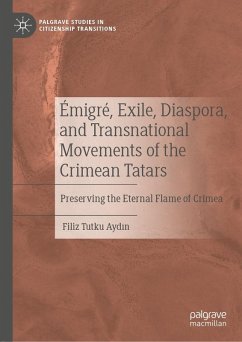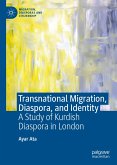-Paul Robert Magocsi, University of Toronto, Canada
'Filiz Tutku Aydin is steeped in the history, language and culture of Crimean Tatars and their tragic history of dispersal. Using careful exegesis of the comparative literature and rich descriptions of Tatars abroad, the author graphically shows how their diaspora was mobilized despite their poignant history of exile and deportation.'
-Robin Cohen, Professor Emeritus of Development Studies, University of Oxford, UK
'Filiz Tutku Aydin treats this complex subject with the deep insight of an insider and a sound analysis of a scholar.'
-Hakan Kirimli, Bilkent University, Turkey
'This is a fascinating study of Crimean Tatars as a transnational nation.'
-Martin Sökefeld, Luwig Maximilan University of Munich, Germany
This book explains the unexpected mobilization of the Crimean Tatar diaspora in recent decades through an exploration of the exile experiences of the Crimean Tatars in Central Asia, Middle East, Eastern Europe, and North America. This book adds to the growing literature on diaspora case studies and is essential reading for researchers and students of diasporas, migration, ethnicity, nationalism, transnationalism, identity formation and social movements. Moreover, this book is relevant both for specialists in Crimean Tatar Studies and for the larger fields of Communist, Post-Communist, Middle Eastern, European, and American studies.
Filiz Tutku Aydin is Assistant Professor in the Department of Political Science and Public Administration at the Social Sciences University of Ankara, Turkey.
Dieser Download kann aus rechtlichen Gründen nur mit Rechnungsadresse in A, B, BG, CY, CZ, D, DK, EW, E, FIN, F, GR, HR, H, IRL, I, LT, L, LR, M, NL, PL, P, R, S, SLO, SK ausgeliefert werden.









